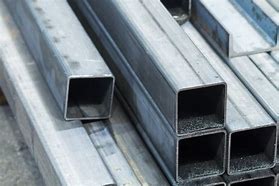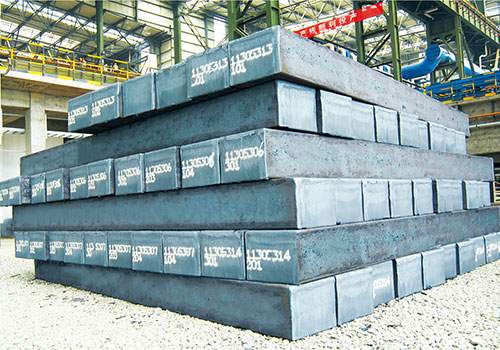
1018 Steel vs 4140: Which Steel to Choose?
Introduction
When selecting the right steel for your project, understanding the distinctions between various grades is crucial. 1018 steel vs 4140 is a common comparison in engineering and manufacturing. Each of these steels has unique properties that make them suitable for specific applications. In this blog, we will delve into the characteristics, advantages, disadvantages, and applications of 1018 steel vs 4140, guiding you in making an informed decision for your next project.

Understanding 1018 Steel
What is 1018 Steel?
1018 steel is a low-carbon steel with a carbon content of about 0.18%. Known for its excellent machinability and weldability, it is widely used in applications such as shafts, gears, and structural components.
Chemical Composition of 1018 Steel
| Element | Composition (%) |
|---|---|
| Carbon (C) | 0.15 – 0.20 |
| Manganese (Mn) | 0.60 – 0.90 |
| Phosphorus (P) | ≤ 0.04 |
| Sulfur (S) | ≤ 0.05 |
| Iron (Fe) | Balance |
This chemical makeup gives 1018 steel its desirable mechanical properties, including strength and ductility.
Key Properties of 1018 Steel
- Tensile Strength: Approximately 440 MPa
- Yield Strength: About 370 MPa
- Elongation: 15-20%
- Hardness: 120-150 HB
These properties make 1018 steel ideal for applications requiring good formability and weldability.
Understanding 4140 Steel
What is 4140 Steel?
4140 steel, on the other hand, is an alloy steel containing chromium and molybdenum. With a carbon content of around 0.40%, it is recognized for its exceptional toughness, strength, and wear resistance, making it suitable for more demanding applications.
Chemical Composition of 4140 Steel
| Element | Composition (%) |
|---|---|
| Carbon (C) | 0.38 – 0.43 |
| Manganese (Mn) | 0.75 – 1.00 |
| Chromium (Cr) | 0.80 – 1.10 |
| Molybdenum (Mo) | 0.15 – 0.25 |
| Silicon (Si) | 0.15 – 0.40 |
| Phosphorus (P) | ≤ 0.035 |
| Sulfur (S) | ≤ 0.040 |
This composition enhances the mechanical properties of 4140 steel, making it suitable for various high-stress applications.
Key Properties of 4140 Steel
- Tensile Strength: Approximately 1000 MPa
- Yield Strength: About 600 MPa
- Elongation: 15-20%
- Hardness: 28-62 HRC (depending on heat treatment)
With its high strength and wear resistance, 4140 steel excels in applications that demand durability.
1018 Steel vs 4140 Steel: Key Differences
Strength and Durability in 1018 Steel vs 4140
The primary difference in the 1018 steel vs 4140 debate is strength. 4140 steel has a significantly higher tensile and yield strength, making it more suitable for applications that require enhanced durability.
Machinability and Weldability of 1018 Steel vs 4140
While 1018 steel is celebrated for its excellent machinability and weldability, 4140 steel can be more challenging to machine. However, both steels can be welded, though 4140 steel may require preheating to prevent cracking.
Applications of 1018 Steel vs 4140 Steel
| Application | 1018 Steel | 4140 Steel |
|---|---|---|
| Gears | Yes | Yes |
| Shafts | Yes | Yes |
| Structural Components | Yes | Limited |
| Heavy-Duty Machinery Parts | No | Yes |
| Automotive Components | No | Yes |
| Tooling | Limited | Yes |
This table illustrates typical applications for each steel, demonstrating their respective strengths in various scenarios.
Advantages and Disadvantages of 1018 Steel vs 4140 Steel
Advantages of 1018 Steel
- Cost-Effective: Generally more affordable than alloy steels.
- Good Weldability: Easy to fabricate and weld.
- Versatile: Suitable for various applications, particularly in manufacturing.
Disadvantages of 1018 Steel
- Lower Strength: Not ideal for high-stress applications.
- Less Wear Resistance: More susceptible to wear compared to 4140 steel.
Advantages of 4140 Steel
- High Strength: Perfect for heavy-duty applications.
- Excellent Wear Resistance: Ideal for parts that experience significant wear and tear.
- Versatile Applications: Widely used in industries requiring high performance.
Disadvantages of 4140 Steel
- Higher Cost: More expensive than 1018 steel.
- Machining Challenges: Can be more difficult to machine effectively.
Applications of 1018 Steel and 4140 Steel

Industries Utilizing 1018 Steel
- Manufacturing: Commonly used for general manufacturing tasks, including gears and shafts.
- Construction: Suitable for structural applications that do not require high strength.
Industries Utilizing 4140 Steel
- Automotive: Crucial for manufacturing gears, axles, and other heavy-duty components.
- Oil and Gas: Employed in drilling tools and machinery where high durability is essential.
- Aerospace: Used in structural components that must withstand extreme conditions.
Conclusion
In conclusion, the choice between 1018 steel vs 4140 steel depends on the specific requirements of your project. If you prioritize cost-effectiveness and ease of fabrication, 1018 steel is an excellent choice. Conversely, for applications that demand high strength and wear resistance, 4140 steel is the superior option. Understanding the properties and applications of both types of steel will help you make a more informed decision that aligns with your project needs.
FAQ
Which steel is better for welding, 1018 or 4140?
1018 steel is generally easier to weld than 4140 steel due to its lower carbon content. However, both can be welded with the right techniques.
Can 4140 steel be heat treated?
Yes, 4140 steel can be heat treated to achieve various hardness levels, enhancing its performance for specific applications.
Is 1018 steel suitable for high-stress applications?
1018 steel is not recommended for high-stress applications due to its lower strength compared to 4140 steel.
What industries commonly use 4140 steel?
4140 steel is widely utilized in automotive, oil and gas, aerospace, and heavy machinery industries due to its exceptional mechanical properties.
How do the costs compare between 1018 and 4140 steel?
In general, 1018 steel is less expensive than 4140 steel, largely due to its simpler composition and manufacturing processes.
By understanding the differences in 1018 steel vs 4140, you can make a more informed decision that best suits your project’s requirements. Whether you prioritize cost, machinability, or strength, knowing the characteristics of each material is crucial for success.






